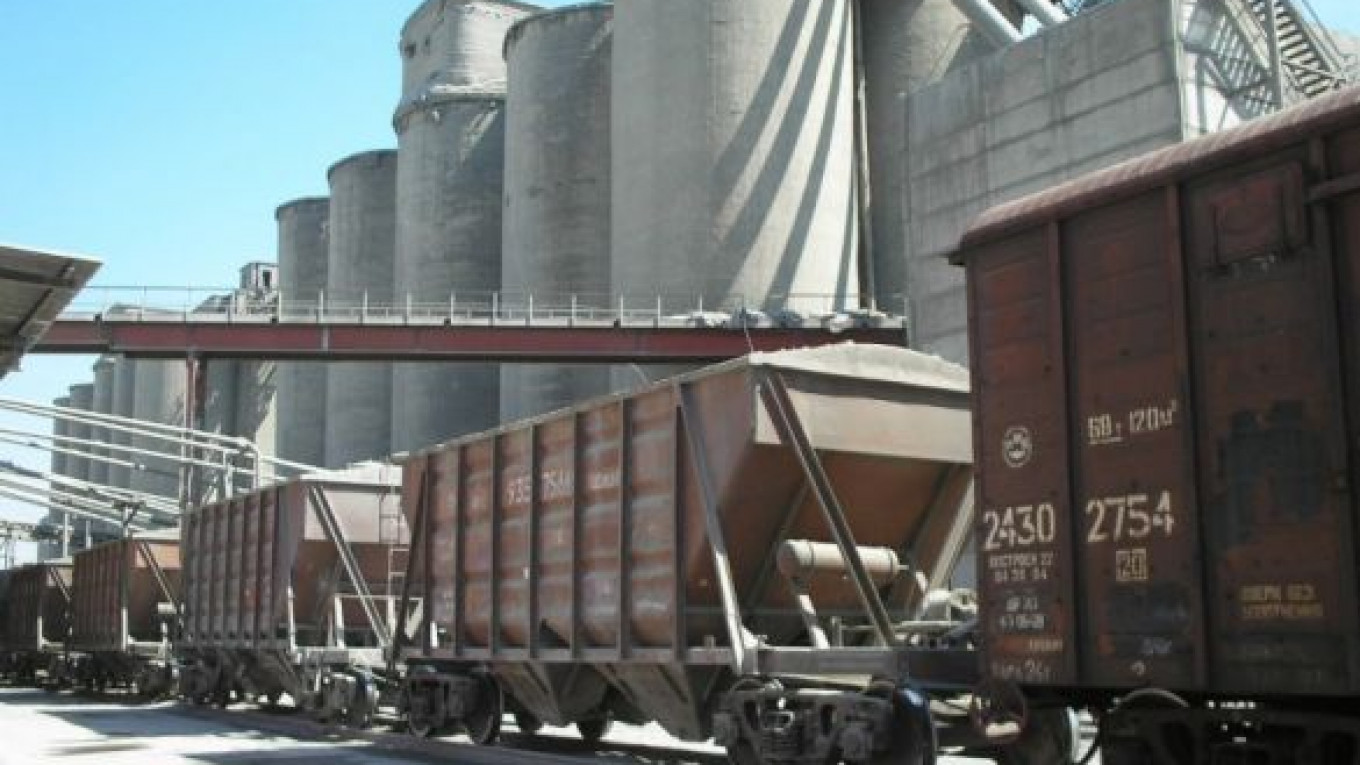Waste from a chemical refinery has turned part of a city in southern Ukraine into a Martian landscape.
Dust, kicked up by strong winds over a frozen sludge reservoir at United Company RusAl's plant in Nikolayev, has covered an area of about five square kilometers including two villages, a local resident told The Moscow Times.
The plant refines alumina — a compound made from bauxite used in aluminum production.
"It started about four days ago," Yury Derzhavin, a Nikolayev resident, told The Moscow Times by telephone.
RusAl has admitted that its plant is the source of the dust. "Dust that appeared as a result of freezing was raised by the wind. The situation has now normalized," the company said in an e-mailed statement.
At least nine people were killed after a red sludge spillage at a Hungarian aluminum refinery last October.
RusAl insisted its byproducts have "no harmful effects on the air or soil."
"In Nikolayev, the sludge goes through a six-stage filtration process and does not contain caustic soda," the company said in the statement.
Derzhavin said he did not know of anyone with breathing difficulties, but added that it "could be because the dust is now under snow rather than in the air."
Red sludge is a byproduct of the early stages of aluminum extraction when bauxite — the ore containing aluminum — is heated with sodium hydroxide, also known as caustic soda.
The process produces a solution containing alumina, which can then be processed to extract the metal, and a solid residue — "red sludge" — containing impurities, heavy metals and chemicals used as processing agents.
The sludge tends to be highly alkaline, especially because of the presence of caustic soda — which means it can burn, or cause fatality if ingested.
Residents are reportedly calm. "Nobody is especially worried. Our people don't panic easily," Derzhavin said.
"There was a spill in the forest about five years ago. Workers from the factory advised locals to use the waste as fertilizer because it was full of alkaloids," Derzhavin said.
There is no data on that year's harvest that might show whether the effluent was as beneficial as the factory workers suggested, Derzhavin said. But it found use elsewhere.
"It was so full of alkaloids people were using it to wash the dishes," he added. "And it was really good for that."
The Moscow Times was unable to find independent scientific confirmation on the agricultural or cleaning benefits of red sludge.
Guinea's government has dispatched security forces to prevent RusAl from exporting alumina from the port of Conakry, two sources with knowledge of RusAl's operations told Reuters on Wednesday.
The measure was taken because of a row over pollution caused by the firm's operations in the West African nation, the sources added. RusAl denied the report.
"This information is contrary to the reality," RusAl said Wednesday. "The situation with the port is not connected with RusAl's activities. RusAl's facilities work as normal, and deliveries of bauxite and alumina proceed according to the schedule."
(Reuters, Bloomberg)
A Message from The Moscow Times:
Dear readers,
We are facing unprecedented challenges. Russia's Prosecutor General's Office has designated The Moscow Times as an "undesirable" organization, criminalizing our work and putting our staff at risk of prosecution. This follows our earlier unjust labeling as a "foreign agent."
These actions are direct attempts to silence independent journalism in Russia. The authorities claim our work "discredits the decisions of the Russian leadership." We see things differently: we strive to provide accurate, unbiased reporting on Russia.
We, the journalists of The Moscow Times, refuse to be silenced. But to continue our work, we need your help.
Your support, no matter how small, makes a world of difference. If you can, please support us monthly starting from just $2. It's quick to set up, and every contribution makes a significant impact.
By supporting The Moscow Times, you're defending open, independent journalism in the face of repression. Thank you for standing with us.
Remind me later.






